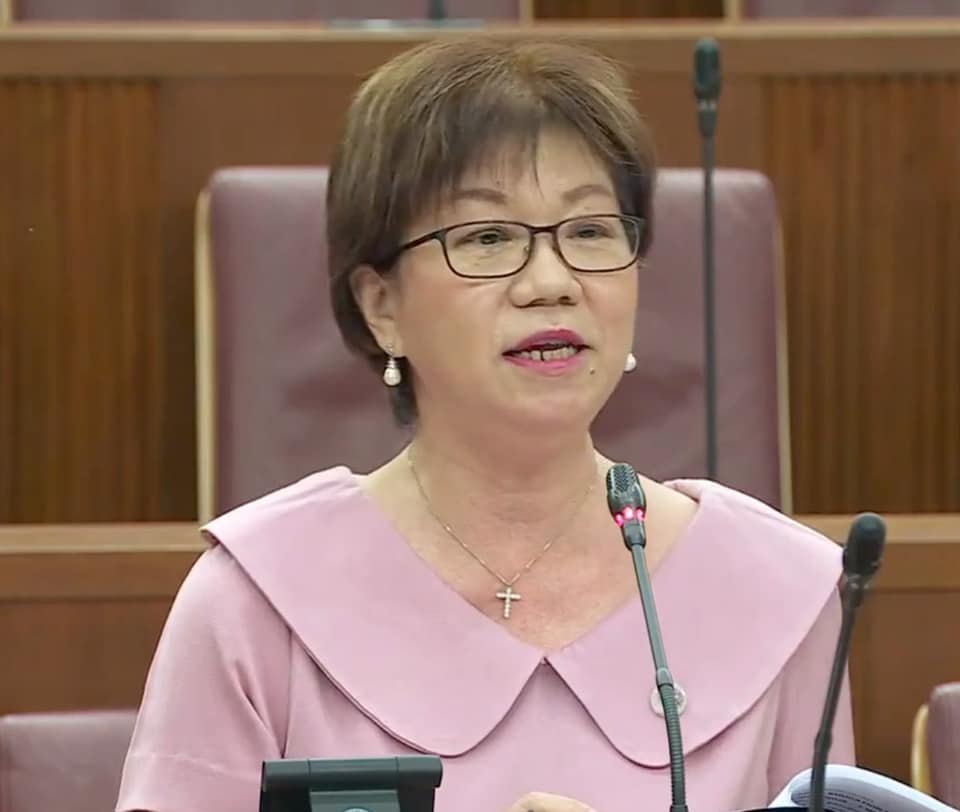Committee of Supply 2022: The Future of Education
Education is one of my passions. Sharing my 4-min Parliament speech on the Future of Education. It’s my third of 7 speeches I will make re Budget 2022.
FUTURE OF EDUCATION SPEECH
BY DENISE PHUA
1. Singapore’s education system, as we know it, will lose its currency and relevance if we don’t make some important moves.
2. What will the FUTURE OF EDUCATION look like?
There is enough evidence and inputs to inform us on what the future of education will look like. The frontloading of education, cramping most of the learning before one’s first job, has to change.
Traditional content such as literacy and numeracy will need to be updated; adding to them - digital, data, and financial literacy and a slew of competencies, attributes, and values needed to survive in this age of unprecedented change.
3. Person-centred, competency-based, mastery-based, self-driven, bite-sized, just-in-time, chasing skills, not paper; classrooms without walls, schools without walls – so often quoted as the future of education.
The entire education ecosystem has enlarged. Members of this House have just seen the National Library Board’s latest blueprint that talks about learning marketplaces and learning superstores serving all Singaporeans. And NLB is not even part of the Ministry of Education.
4. We have to THINK BIG, BELIEVE BIG, AND ACT NOW. Let me propose 5 ways to begin this exciting journey.
5. First, UPDATE AND CASCADE THE VISION; so that more Singaporeans are aligned with our end in mind, from K to 12, from youths to adults.
I fully resonate with Education Minister Chan Chun Sing’s views of what education should be – of continual learning, connecting and collaborations, and confidence building.
He spoke about having to stop thinking of educating cohorts and the traditional KPI of ‘Cohort Participation Rates’ and replacing it with the concept of ‘Lifelong Learning Participation Rate’. Makes a lot of sense, if we think of how every Singaporean ought to prepare for each of the average 4 to 5 job changes he makes in his working life.
6. Second, ADDRESS THE RESTRAINING FORCES of change, the often unspoken elephants in the room.
The glaring and valid concern of educators in face of an ever increasingly overloaded curricula; in expectation of them to pivot to become content curators, learning designers, and life coaches; and to teach in a way that they themselves had not quite experienced before.
7. What about the less glaring but stronger restraining force that is unseen, below the waterline? The beliefs, conditioned behaviours, and fears of the very people involved in education; school leaders, educators, parents and employers?
8. Someone once quipped that education is an inherently conservative social enterprise and changing education is like trying to move a graveyard.
It will be hard for Singapore. We are a victim of our success. We are so used to using the academic yardstick in parenting, in hiring, and judging each other.
9. THREE, SHOW IT CAN BE DONE. BE BOLD. PICK A FEW STRATEGIC PILOTS. GO FOR BROKE.
For instance, pilot through-train schools without the PSLE - an idea I have brought up for years. If PSLE, regardless of what the MOE has tried, is a sacred cow and if slain can free time and space for change, then let go of it! The risk is not high. Singapore will not be the first in the world to operate through-trained primary to secondary schools.
10. FOUR, START WITH THE EDUCATOR OF EDUCATORS.
Singapore is blessed to have a teaching workforce that is generally well regarded, professional, and motivated.
Their mothership, the National Institute of Education will need to be prepared to raise our educators to find their place in the new enlarged education eco-system. NIE will have to rethink its traditional modes of management, collaborate and connect with local and global partners, to reframe and refresh its institution and offerings.
11. FIVE, START ADDRESSING THE CHALLENGES OF ADULT LEARNERS.
Andreas Schleicher, OECD’s Special Adviser on Education Policy, observed the striking gap between Singapore’s younger and older workforce; and advised the strong need for Singapore to seriously develop our older workers.
There are of course challenges – not the availability of courses; likely the motivation to learn or the way by which adult learning is designed and offered.
But focus, we must, seriously on our adult and older learners. If we don’t, many of them will become Singapore’s future low-income earners.
12. Sir, the future of education is now. THINK BIG, BELIEVE BIG, AND ACT NOW.
Denise Phua 7 March 2022

